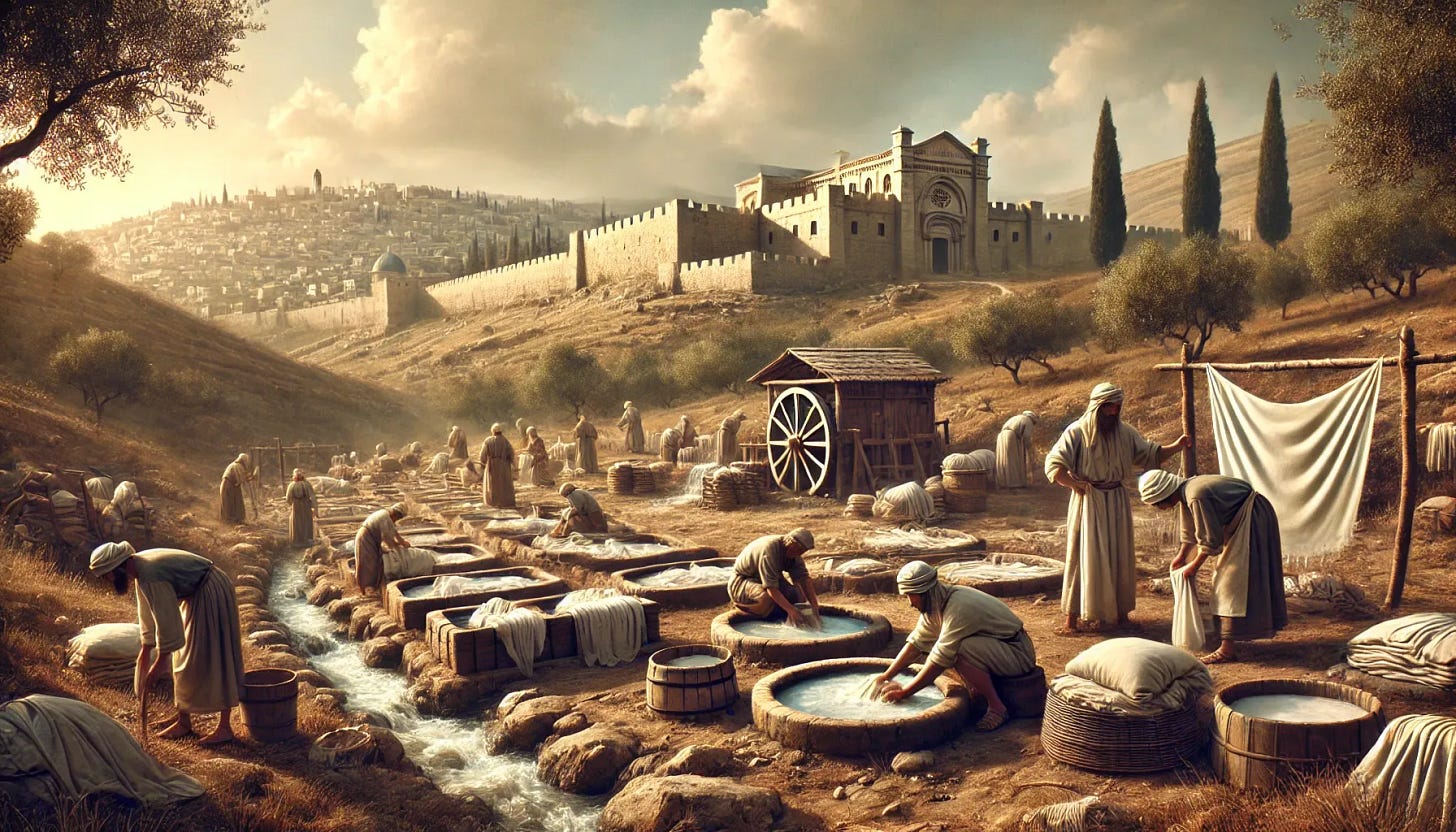Fuller’s Soap: A forgotten phrase that reveals a truth about Christ
Here's what I learned about a lost biblical metaphor.
I love stumbling upon an unfamiliar term in the Bible — usually a phrase or word that was common thousands of years ago but is unknown today. These little discoveries open the door to deeper understanding and fresh insight.
Sunday’s Scripture readings were full of them. The Gospel passage, Luke 2:22-40, tells of Mary’s purification and Jesus’ presentation at the temple — events rich with Jewish tradition that add layers of meaning to the story. I explored those in a post on Monday.
But the Gospel reading wasn’t the only passage with a hidden gem.
In the Old Testament reading, Malachi 3:1-4, I came across a phrase I’d never really noticed before: “fuller’s soap.” It was unfamiliar to me, and I imagine I’m not alone.
So I dug in. Here’s what I learned about fuller’s soap — and how it, like so much in Scripture, ultimately points to Jesus Christ.
Malachi 3 opens with a powerful declaration: “Behold, I send my messenger, and he will prepare the way before me. And the Lord whom you seek will suddenly come to his temple.”
Though written five centuries before Jesus’ ministry, this verse is widely seen as a prophecy about John the Baptist (the messenger) preparing the way for Jesus (the Lord).
Verse 2 continues:
“But who can endure the day of his coming, and who can stand when he appears? For he is like a refiner's fire and like fullers' soap.”
Most modern readers will recognize the imagery of fire purifying metal, but fuller’s soap? That phrase is foreign to most Americans today.
Fuller's soap was a strong, alkaline cleansing agent used in ancient times to whiten and purify cloth, especially wool. It was made from natural substances like potash (derived from plant ashes) or natron (a type of mineral salt).
Fuller’s soap as it was known in ancient times is not commonly used today. However, the process of fulling — cleaning and thickening wool — still exists, though modern laundry detergents, stain removers or industrial cleaners are now used for deep cleaning fabrics.
The profession of fulling was so significant that there was an area outside Jerusalem called the Fuller's Field, designated for these professional laundering and cleaning services.
The fuller was a worker who cleaned and thickened wool by soaking it in this soap and then beating or treading on it to remove oils, dirt, and impurities.
The imagery of fuller's soap symbolizes God's purification of His people. Just as the soap cleanses fabric by removing impurities, God purifies His people by cleansing them from sin and refining their character.
This verse is often associated with the work of Christ and the Holy Spirit in sanctifying believers, preparing them for God's presence.
Thank you, Jesus, for shedding your blood on the cross and cleansing us from our sins.




